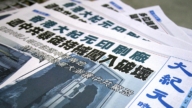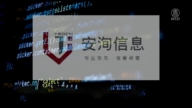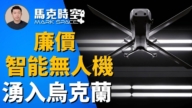【新唐人2014年01月20日訊】「中國互聯網信息中心(CNNIC)」發佈的第33次《中國互聯網發展狀況統計報告》顯示,2013年微博用戶規模和使用率出現大幅下降,相比2012年減少了2783萬用戶。評論認為,微博用戶減少的一個原因,與中共打擊網路「大V」,以及一系列的「淨網」分不開。
1月16號,「中國互聯網信息中心」發佈的統計報告顯示,截至2013年12月,整體即時通信用戶規模提升到5億 3200萬,較2012年底增長了6440萬,使用率高達86%以上,繼續保持第一的地位。
而微博、社交網站、及論壇等互聯網的使用率卻有所下降,其中微博用戶規模為2億8100萬,較2012年底減少2783萬,下降9.0%。網民中微博使用率為45.5%,較上年底降低9.2個百分點。
大陸民主人士、高級工程師徐琳:「中國的微博用戶越來越少,主要原因就是因為當局經常封掉這些用戶的帳號,原因就是他們認為微博對它們當局執政有威脅,所謂的影響安定,很多用戶帳號被封了以後,他們又換一個帳號,叫轉世黨。」
大陸民主人士、高級工程師徐琳指出,許多「轉世黨」不但連續被封帖刪號,有些甚至被「喝茶」「查水錶」等,所以大家撤離微博,轉到微信和推特、臉書了。
北京憲政學者陳永苗:「我覺得微博用戶的減少,應該是跟去年的打『大V』有關係的,以及一系列的政治整頓是分不開來的,微博、整個互聯絡它的自由繁榮,都離不開言論自由的環境。」
去年2月底,中共開展所謂「淨網」行動,關閉了貼吧、微吧4000多個,封殺微博、微信、QQ帳號3萬多個;據報導,這些被「查處」的對像,很多與發佈所謂異議言論有關。
5月2號,「國信辦」宣佈將集中打擊「大V」名人言論。隨後,擁有數百萬粉絲的作家慕容雪村、「政法大學」教授何兵、律師斯偉江等敢言的微博名人賬號,相繼遭到封殺銷號。
8月中旬,審查中國網路的「國信辦」主任魯煒,召集潘石屹等十多位網路名人舉行座談交流,拋出了所謂的「七條底線」。
8月20號,中共當局再次開展所謂網路「打謠行動」。短短幾天內,包括:網路推手「秦火火」、《新快報》記者劉虎、「網路反腐鬥士」周祿寶等,上千名網路敢言人士被抓捕。
網路「大V」薛蠻子,更是被當局以「涉嫌嫖娼」拘留,《央視》播放了他在北京看守所的畫面,此後,薛蠻子一直被拘押至今。
9月9號,最高法院和最高檢察院針對網路言論,作出了「謠言轉500次入罪」的司法解釋。 17號,年僅16歲的初中生楊某,因發微博質疑當地一起死亡案件,被刑拘。
11月下旬,新浪微博再以禁言、永久封閉帳號的方式,處理了10萬個所謂違反了「七條底線」的微博帳戶。期間又有多位知名「大V」相繼被抓,或被封殺。
11月底,北京當局公布的數據顯示,僅2013年下半年,就有1萬1千人在所謂的「清網運動」中被抓捕,1200多家互聯網單位被處罰。
旅美原大陸歷史學教授劉因全指出,「防民之口甚於防川」,中共用這種辦法來封網、箝制輿論只會加劇人們的不滿。
旅美原大陸歷史學教授劉因全:「我們打一個不恰當的比方,就是高壓鍋,為甚麼高壓鍋要做一個閥門,就是為了叫它這個氣,在壓力達到一定程度的時候,從閥門排出來,這才免得最後高壓鍋爆炸,如果沒有這個閥門,當氣達到一定壓力的時候整個高壓鍋就會爆炸。」
劉因全指出,一個社會也是這樣,如果老百姓的心裡的不滿,沒有一個渠道表達出來,憋在心裡,達到一定臨界點,社會就會出現大動盪,甚至會出現暴力革命。
採訪編輯/李韻 後製/君卓
Chinese Internet Users Abandon Weibo
The latest annual report from China Internet Network
Information Center (CNNIC) shows a large decline
in Weibo users in 2013.
The number of online Weibo users in China dropped
by more than 27.83 million last year.
Commentators analyze that the regime’s crackdown
on the users of this popular social media site as well as
a series of content censorships has contributed to the decline.
According to data released by CNNIC on Jan. 16,
instant-messaging services experienced rapid growth,
increasing to 531 million users in 2013,
a growth of 64.4 million from the end of 2012.
IM continues to be the most popular Internet service,
enjoying more than 86 percent of web users.
Micro-blogging platforms and forums have seen
a drop in users.
Weibo users have dropped to 281 million, a decline
of 27.83 million, or 9 percent, from 2012.
45.5 percent of China’s Internet users have a Weibo account,
a 9.2 percent decrease from 2012.
Xu Lin, activist and engineer: “There’s a decline in social
media users because of the constant blockade by the regime.
The regime has considered social media a threat
to the so-called stability.
Those whose accounts have been closed open new accounts,
and have been dubbed “the reincarnation party."
Activist Xu Lin says that many members
of the reincarnation party have been repetitively
blocked and deleted, and even forced to “have tea"
or “check the meter" – interrogations – with the police.
Therefore, many users have left Weibo and switched
to WeChat, Twitter and Facebook.
Chen Yongmiao, China constitution scholar in Beijing:
“I think the decline in Weibo is related to the fight
the ‘Big V,’ campaign – monitoring verified Weibo users
with more than 500,000 followers – and the series
of political consolidations.
An environment that allows free expression has grown
alongside the development of Weibo and the Internet."
Since February of last year, the regime has initiated
heavier online censorship.
More than 4,000 online bulletin boards were closed as well as
more than 30,000 Weibo, WeChat and QQ accounts.
Punishment doled out to users is reportedly due to their
so-called opposition remarks.
On May 2, the regime web regulator initiated the movement
to clean out Big Vs.
Following the announcement, numerous outspoken
Weibo users were blocked, including writer Murong Wuecun,
China University of Political Science and Law professor
He Bing, and lawyer Si Weijiang.
In mid-August, Chinese Internet regulator director Lu Wei
put forth the so-called “seven bottom lines," or a list or rules
for social media users with large followings, while in a forum
with more than a dozen of popular Internet celebrities.
On Aug. 20, the regime again carried out a “fight online
rumors" campaign.
In just a few days, over a thousand outspoken Internet users
were arrested, including the Chinese Internet pushing hand
Qin Huohuo, journalist Liu Hu, and the Internet anti-corruption
fighter Zhou Lubao.
Charles Xue, a Big V, was detained on charges
of soliciting prostitution.
The regime led CCTV aired his detention at the Beijing
detention center.
Charles Xue is still in custody.
On Sept. 9, the Supreme Court and the Supreme Procuratorate
issued the judicial interpretation for a new charge –
spreading rumors with 500 followers.
On Sept. 17, a 16 -year-old junior high school student
with the surname Yang was arrested and detained
for questioning a local murder case in his blog post.
In late November, Sina Weibo closed more than 100,000 user
accounts for violations of the seven bottom lines.
Many Big Vs have been arrested or blocked.
By the end of November, official regime data revealed
11,000 users had been arrested in the online censorship
movement, and more than 1,200 Internet Web sites were
punished just in the second half of 2013.
Former history professor Liu Yinquan indicates that
the regime has been suppressing freedom of speech
to the point of aggrivating public discontent.
Liu Yinquan, former history professor: “Let’s use an analogy
….with a pressure cooker.
A pressure cooker needs a valve to release the pressure
at a certain point to prevent from explosion.
Without a valve, explosion will take place when the pressure
in the cooker is too high."
Liu Yinquan points out that society operates similarly.
The discontentment need an outlet.
At a certain point, if the discontentment has built too much,
upheaval and even violent revolution will develop.
Interview & Edit/LiYun Post-Production/JunZhuo






























